The board voted 4-1 in favor of moving to a final vote later this month on the controversial 15-day sexual health class
NOTE: This article has been updated to reflect responses from the district. Updates are in bold.
BATTLE GROUND — Despite testimony from over two dozen people, the vast majority of it critical, Battle Ground School’s Board of Directors moved their new Comprehensive Sex Education (CSE) curriculum forward to a second reading in a 4-1 vote on Monday night.
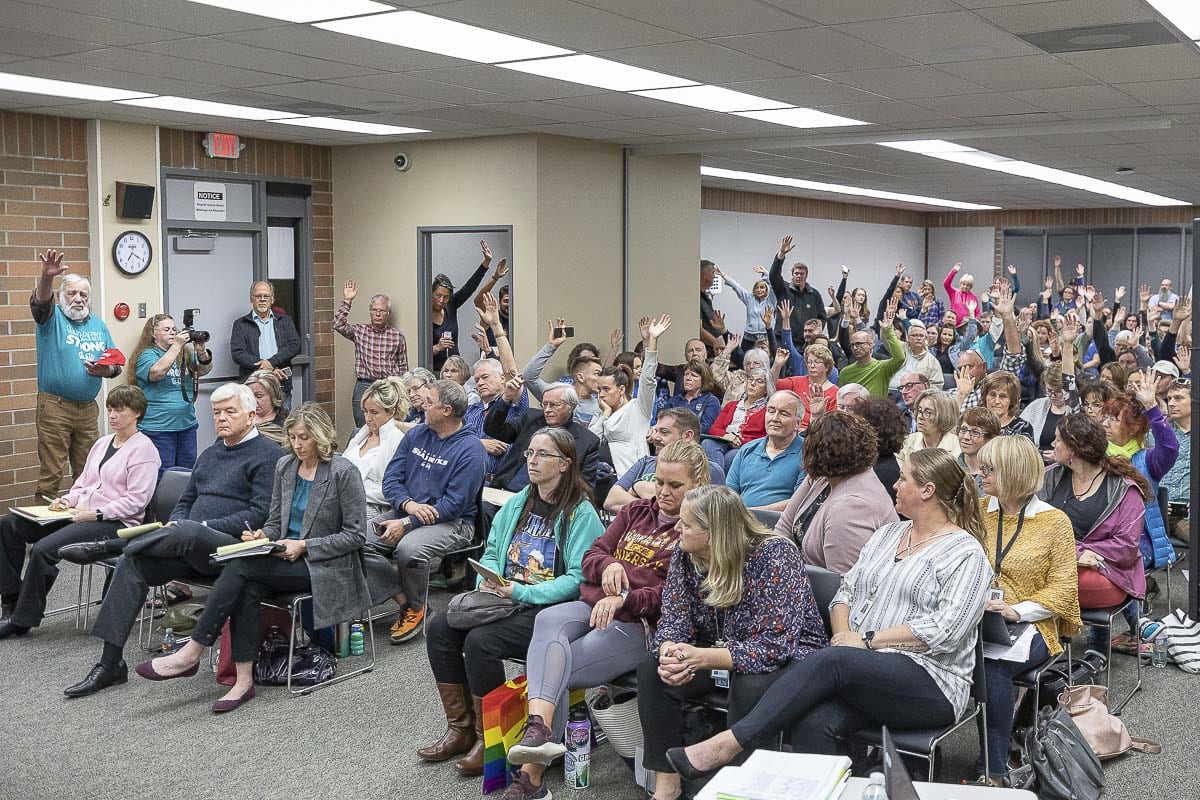
Tina Lambert was the lone dissenter. Board members Monty Anderson, Troy McCoy, Mark Watrin and Rob Henrikson all voted in favor of moving the new curriculum forward.
The district first moved to adopt a new sexual health curriculum last year, after determining their existing teaching on the subject fell short of the state’s Healthy Youth Act requirements approved by the Office of Superintendent of Public Instruction (OSPI) in 2016.
The proposed new materials borrowed largely from the Family Learning And Sexual Health (FLASH) curriculum developed in King County.
The county’s website says FLASH uses the theory of Planned Behavior, which includes lessons in “a variety of strategies designed to create positive attitudes, beliefs and norms and to build skills in order to reduce rates of pregnancy, STDs and sexual violence.”
Critics claimed the lessons included graphic depictions of sexual activity, and encouraged youth to question their own sexuality. Supporters point out that helping high school students to better understand their sexuality has been shown to reduce rates of suicide for LGBTQ students, and let to decreased rates of teenage pregnancy and STDs.
After hearing sharp criticism from the community during the adoption process last year, district Superintendent Mark Ross admitted that their process in selecting the curriculum may have lacked enough public input, so he decided to press pause and convene a new committee. The group looked at 11 sexual health curriculum options, 8 of which had been reviewed by OSPI. These encompass all the sexual health curricula that are available.
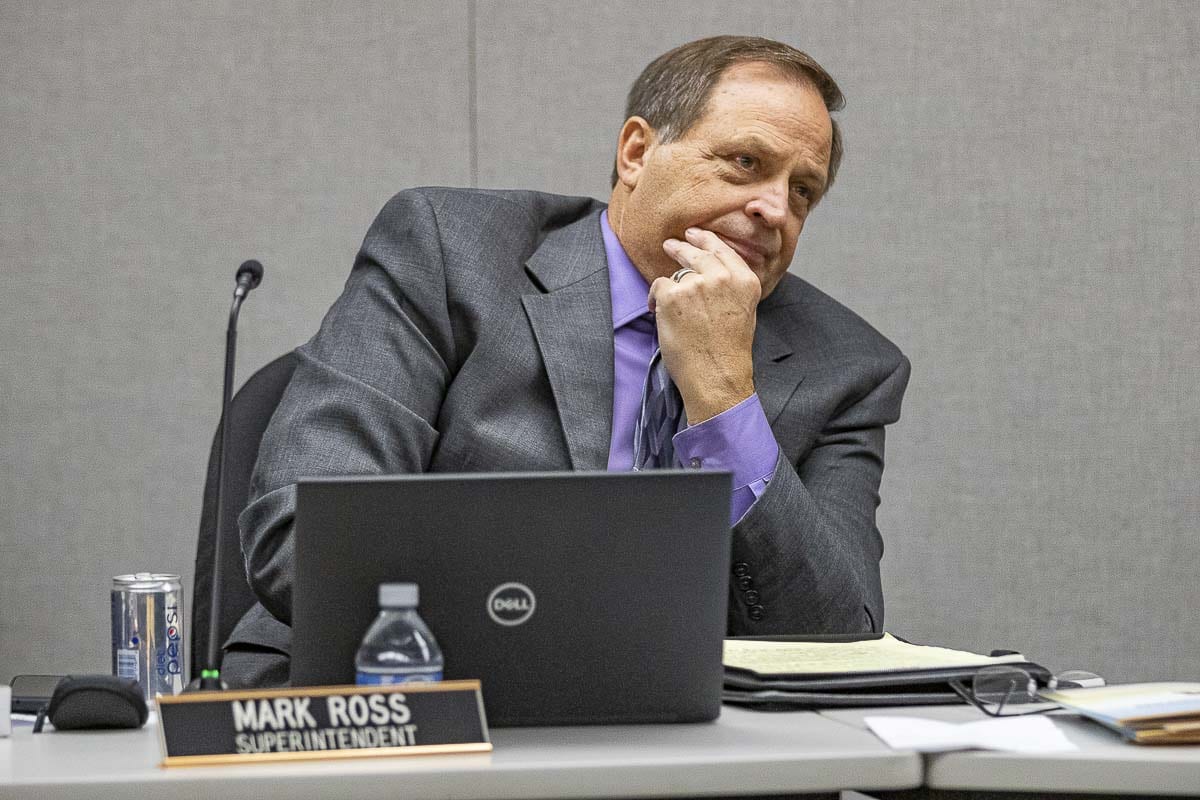
That year-long process led to a three-week CSE course involving seven units, covering topics such as teen pregnancy, contraception methods, sexual health, confirmed consent, and gender identity.
That last topic drew the bulk of the criticism from members of the public who spoke at Monday’s meeting.
“Once the door is open, the flood tide really comes in,” said Doug Sheddy, a local pastor and vocal critic of the curriculum. “There’s a force that’s pushing and jamming, and trying to get this as readily available everywhere as possible.”
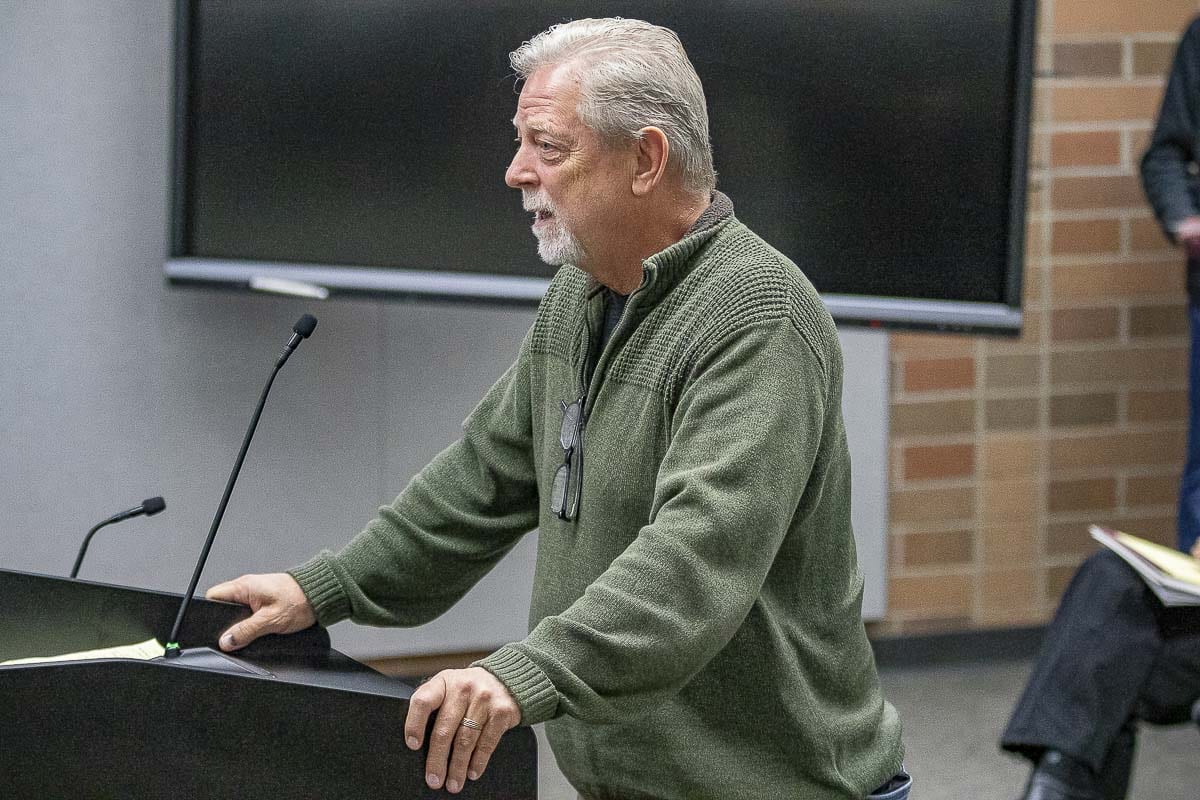
Ina Matson, a mother of three high school students in the district, said she viewed the curriculum, and much of the subject matter made her blush. “I’m like ‘are you kidding me?’ This is not OK.”
Dawn Seaver said she had reviewed the selected curriculum and noted that one section on condoms spoke about the different shapes, sizes, and even flavors they come in.
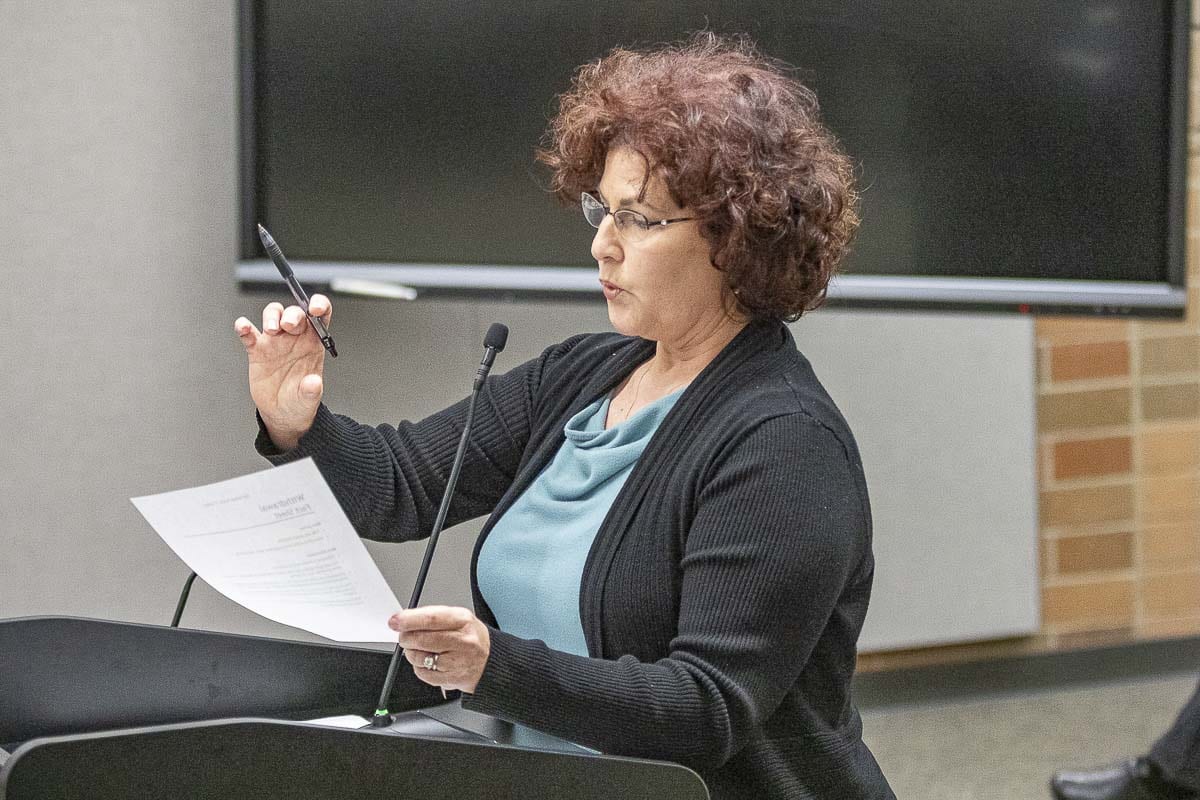
“That sounds like promotion to me,” said Seaver, who noted another section went into graphic detail about what happens to both boys and girls during orgasm.
“A whole lot of detail that I don’t want to read here,” Seaver said. “And if it’s not appropriate in a roomful of adults, it’s not appropriate in a co-ed classroom of 14-year olds.”
The district noted that of the 28 speakers during Monday’s meeting, only seven had viewed the actual proposed curriculum.
Rep. Vicki Kraft (R-Vancouver, 17th District) was unable to attend the meeting in person, but sent her husband Paul to read a statement she had written.
“You would literally be creating more demand for sex as children are exposed to these ideas,” Kraft read. “They will likely start having sex earlier and, as a result, criminal or violent acts may result.”
Kraft went on to say she believes teenagers exposed to these kinds of teachings would likely have higher rates of unwanted pregnancy, more abortions, and a greater prevalence of sexual violence and rape.
“By the time they’re adults they may have such a desire for sex, they’re willing to buy sex from an unwilling child’s pimp or parent,” Kraft wrote. “It’s happening already in our communities, more than we want to admit.”
Krystal Saling, a health and fitness teacher at Pleasant Valley Middle School, said she believes the education would have the opposite impact, lowering rates of teen pregnancies and improving the lives of LGBTQ students in the district.
“Eighty percent of people who identify with that get bullied, and some physically assaulted,” said Saling. “There are so many studies right now … that show with gender inclusive curriculum, that gets cut by crazy numbers.”
“I also agree that it’s a parent’s responsibility to teach their kids their values and what they want from them, and that they should go home and talk to their parents about it,” Saling added. “Unfortunately, that doesn’t happen with all parents, so this is an opportunity for teachers to give students information, and it is not promoting any sort of gender identity or LGBTQ lifestyle. It’s affirming that everybody is a person, and we all have value.”
“I would prefer they get information like this from their teachers, rather than the back of a bus, the cafeteria, their peers, social media, or other media,” said Alyssa Hoyt, a mother of three students in the district. “I think that parents need to work in congruence with the school district, rather than relying on the hope that their students will be educated in the right way by their peers.”
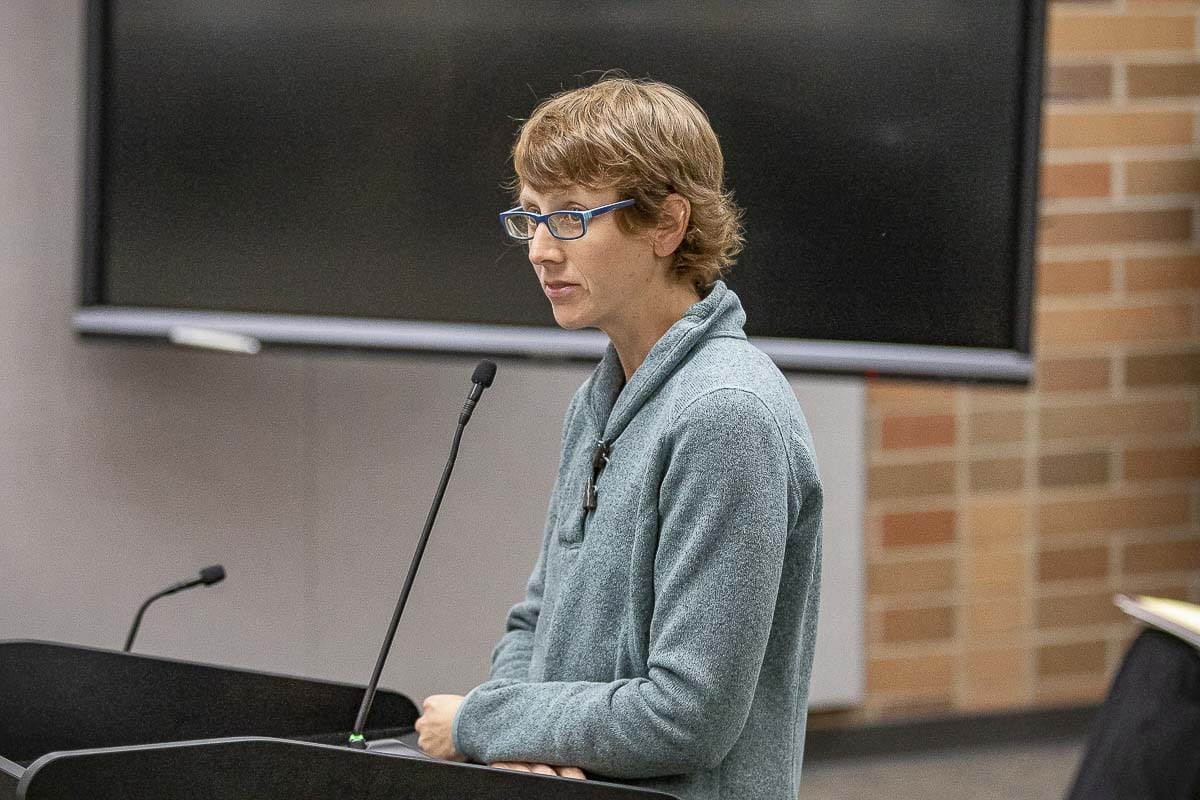
Board presentation and discussion
In a presentation on the curriculum following the public hearing, Allison Tuchardt and David Cresap, the district’s co-directors of instruction and assessment, said several changes had been made to the FLASH units following a community review period, taking into account some of the feedback presented by people who had reviewed the curriculum at two public forums, or who had scheduled an appointment to review the materials.
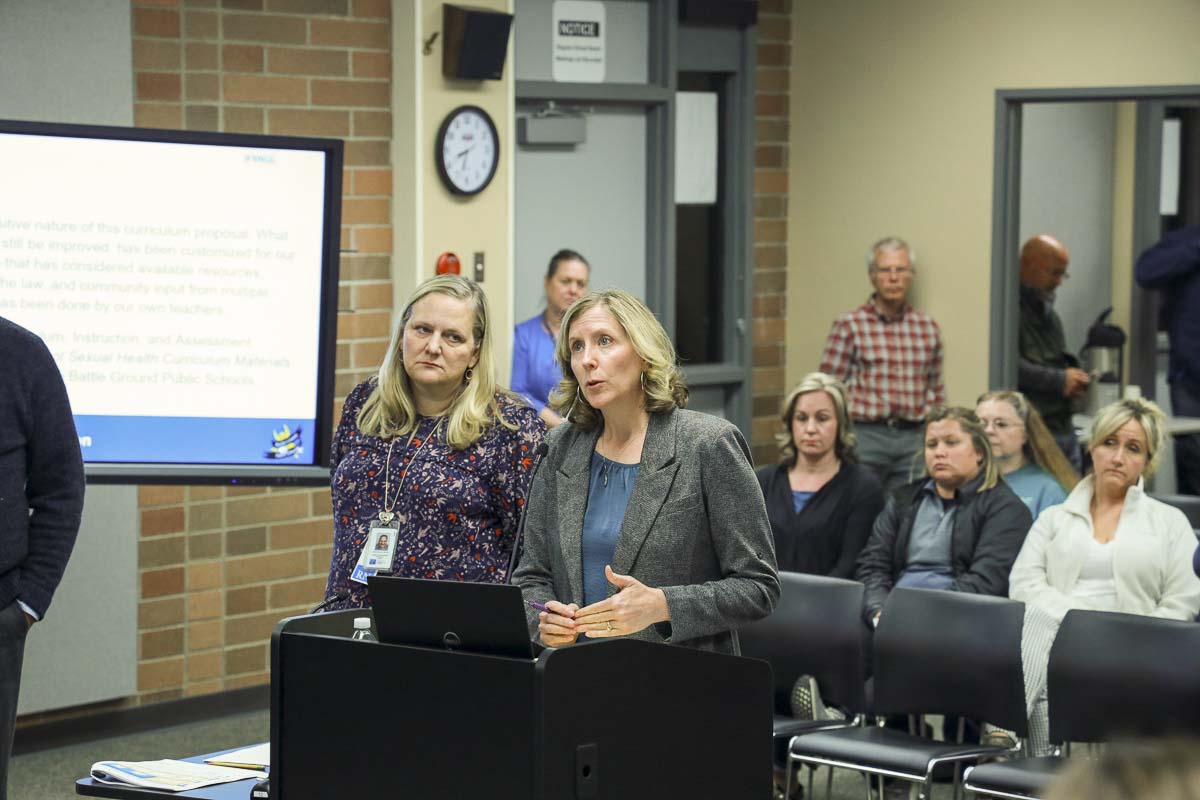
One of those was to remove a video which contained some profanity, said Tuchard, as well as a statement about abortion being the most common medical practice in the United States, which was viewed as a subjective statement. Another page in which sperm were labeled “male” and “female” was changed to read “sperm carrying X chromosome” and “sperm carrying Y chromosome.”
The committee also decided to add a statement about inclusivity early in the course which went beyond LGBTQ students, to include students with religious values.
“One of the things that became apparent in the community review process is that, whether or not students feel included is important to both sides of this issue,” said Cresap. “We just wanted to make sure that there was a statement up front in the materials, especially around the teaching of it, that that inclusivity concept was a two-way street.”
McCoy, the board president, said he would also like to see a section on the withdrawal method removed from the curriculum, especially a section that seems to tell students that “practice makes perfect.”
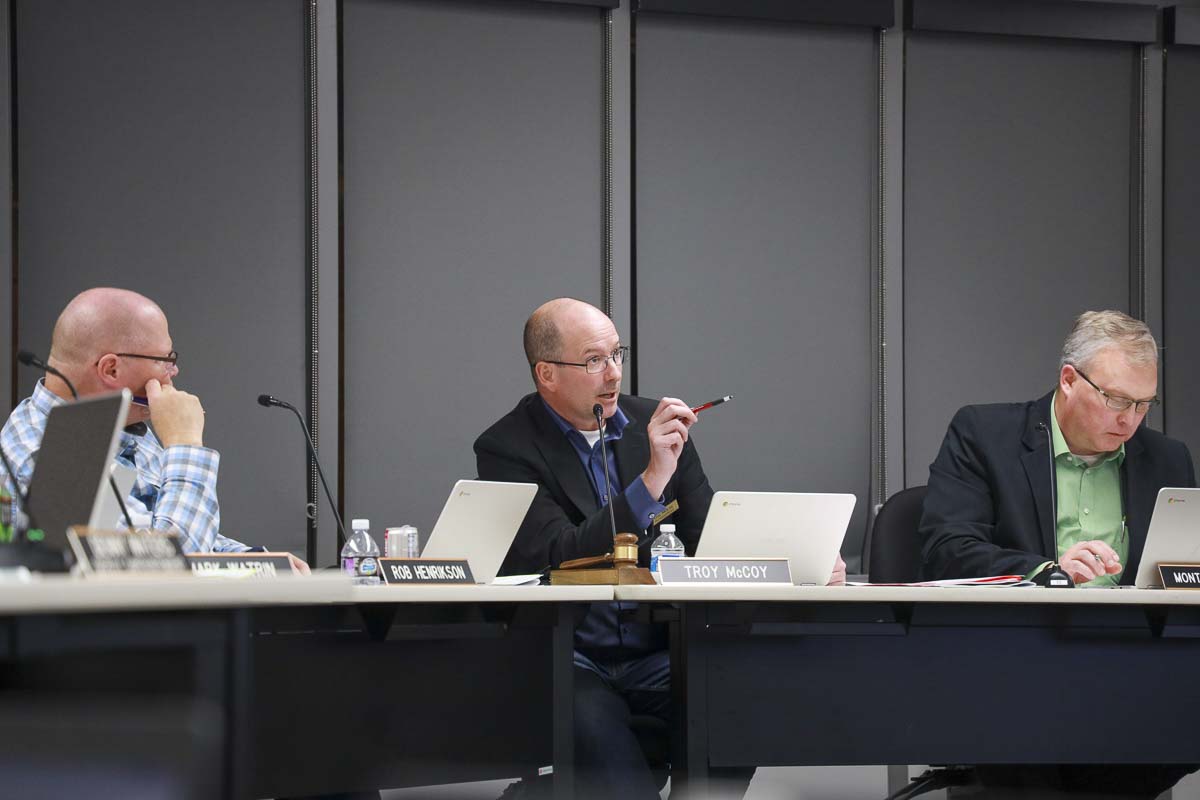
“Fourteen year olds are in control of a lot of stuff, but I don’t think that’s one of them,” said McCoy, adding he would also like to see more information given about the content of each section in the opt-out form given to parents.
Tuchardt mentioned that another section does explain the effectiveness of various birth control methods, including a note that the withdrawal method is the least effective, with abstinence being the only fully effective method of avoiding pregnancy.
Lambert thanked the committee for starting over, but expressed surprise with the final results of the extended process.
“I was surprised to see how much of what the community opposed last year came back this year,” said Lambert.
“I feel like we work for the community, and I think we’ve heard them loud and clear,” she added later. “Perhaps if we do what they ask they would respond by voting in favor of our bonds and levies.”
That comment received a round of applause from the crowd of around 150 people, including one who shouted “thank you Tina!”
Henrikson also wanted further clarification on some concerns raised that the introduction of this curriculum in high school represented a “camel’s nose under the tent” approach to eventually have comprehensive sex education at all grade levels.
“If this is approved tonight, where do we go when they ask us to teach it to K-12?” Henrickson asked.
“We honestly would obey the law,” said Ross, “so if the law is passed we would create something. But until that happens this is a high school sexual health curriculum.”
A bill which would have mandated comprehensive sexual health education at lower grade levels was approved in the Washington State Senate earlier this year, but died in the House. Kraft was a major opponent of the bill.
In his only other comments on the matter, Ross said the district has done its best to try and find a solution that works for as many students as possible, noting that the process has taken some 18 months to develop what amounts to a 15-day unit in the larger health curriculum.
“In presenting the curriculum, the district promotes no agenda, except to satisfy the board policy 2125 that states that sexual health education instruction will be taught in Battle Ground School District,” said Ross. “Our intent is not to make decisions for our students or to contradict individual family beliefs, but to provide a curriculum that gives students the information they need to make informed decisions, and continue to promote our goal of tolerance and respect for all students, regardless of race, color, religion or gender identity.”
“I think the teachers are fully aware of the sensitivity,” added Cresap, noting that they are committed to training teachers to stick with scientific facts, and avoid letting bias leak in. “There’s nothing in this curriculum that would suggest we’re trying to have people question their own identity. That is not at all the intention.”
Cresap also said parents will have the opportunity to opt out of any or all of the seven units, and will be given information about what is in each course ahead of time. Those who opt out would work with their teacher to receive other health-related learning during that time period.
Board Vice President Monty Anderson said he personally disagrees with many of the concepts being taught in the curriculum, but that failing to approve the curriculum would mean less information for parents about what is being taught.
“I need to know what they are being taught,” said Anderson, “so that then, when they come home, I can teach them my values and my beliefs.”
McCoy said he was voting yes for this first reading, but reserves the right to change his mind at the board’s next meeting on Oct. 28 if some concerns aren’t addressed.
The board will hear an updated presentation at that final October meeting and could approve the curriculum at that time. Tuchard said parents would be notified at least 30 days before the teaching of any new curriculum. Teachers will also need time to go through the lessons, which is expected to take three weeks. If approved at their Oct. 28 meeting, the new CSE lessons could potentially be implemented in January of next year.




